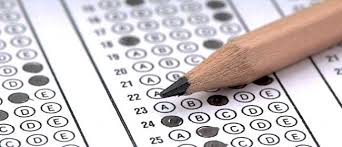Blog
Writing a Test for Social Work Students? Considerations for Question Writing
Social work educators are often called upon to author tests. We often use these exams to measure student proficiency in an effort towards grading their progress in individual courses. However, it is rare that social work educators are provided guidance on how to develop these tools. This post aims to provide some guidance to social work educators about considerations to make when developing a test, whether for use in a particular class, or towards a broader goal of program assessment.
When you are preparing to write an exam ask yourself some key questions:
1) What am I trying to measure or gauge in my students? Their knowledge? Their decision-making skills? Their values? Make sure that the questions you ask align with the purpose of your instrument.
- If you want to measure knowledge stick to questions that focus on important, or even invaluable, concepts. Knowledge questions should highlight concepts and information that, if missing from a social worker's consideration, would be concerning.
- If you seek to evaluate decision-making skills, employ case examples/ vignettes/ scenarios that provide the opportunity for students to evaluate choices in the context of a situation that highlights the considerations to be made.
- If you want to assess student values, please recognize that a student can easily tell you what they think you want to hear. A social worker's values are better assessed through their actual practice, and not through a written test.
2) How can I capture what I'm looking for?
- The easiest exams to write are those with prompts/questions that seek open-ended responses, like short-answer and essay questions. These types of exams also provide students with freedom of expression in how to respond. However, these are difficult to grade, not just because of the time it takes to evaluate the responses, but also because there are multiple considerations to make. Are you assessing the response on the content? The writing skills? Grammar and spelling? Length?
- Multiple-choice exams are the easiest to grade, but not easy to write well. The question prompt and all the answer options need to be well thought out, so that they are clear to all readers.
- True/False questions are easy to write and easy to grade, but are they actually helpful to an evaluation of student achievement or understanding? Usually the answer is no. True/False questions are most appropriate when you expect everyone to get the question correct, as if to drive the point that everyone should know the answer...
Once you consider your answers to these key questions, you should keep your choices in mind as you develop your items/questions.
We expect students to take exams seriously, so we need to also take seriously the process we use to make those exams.
At SWEAP, we take very seriously our role in writing instruments that will be used by hundreds of undergraduate and graduate social work programs every year. Thousands of students every semester trust us to write questions that are clear and fair.
For each instrument we author, there is a panel of social work experts who work on a team to develop the tool. We then work with hundreds of social work students at both the undergraduate and graduate levels who pilot the instrument before we offer the instrument for sale. We regularly evaluate our instruments and their performance, and update them as necessary to respond to any valid concerns.
For many years, our SWEAP Curriculum Instrument (a multiple choice knowledge test) utilized answer choices that included "none" or "all" of the above. After evaluating performance on those questions, and considering the goals of the instrument itself, we no longer include questions with those answer choices.
Additionally, our questions and possible answers are devoid of language that suggests a demographic characteristic (ie. gender identity, race, etc.) unnecessary to context of the question. This decision was intentionally made to ensure that SWEAP instruments do not further biases or result in micro aggressions. The SWEAP team is committed to Anti-Racism, Diversity, Equity and Inclusion (ADEI) in all the work we do.
We encourage social work educators to make the same considerations in exams that they author individually, for their own purposes.
If you have any questions or concerns, reach out to us at: ask@sweapinstruments.org

